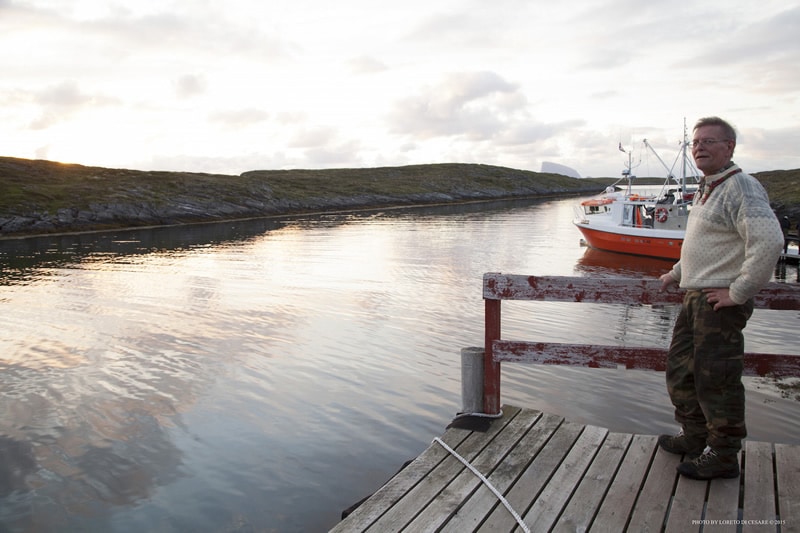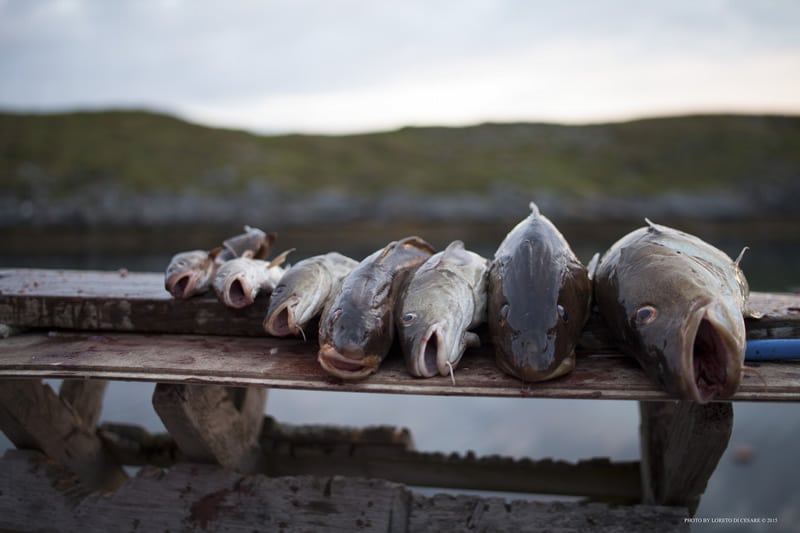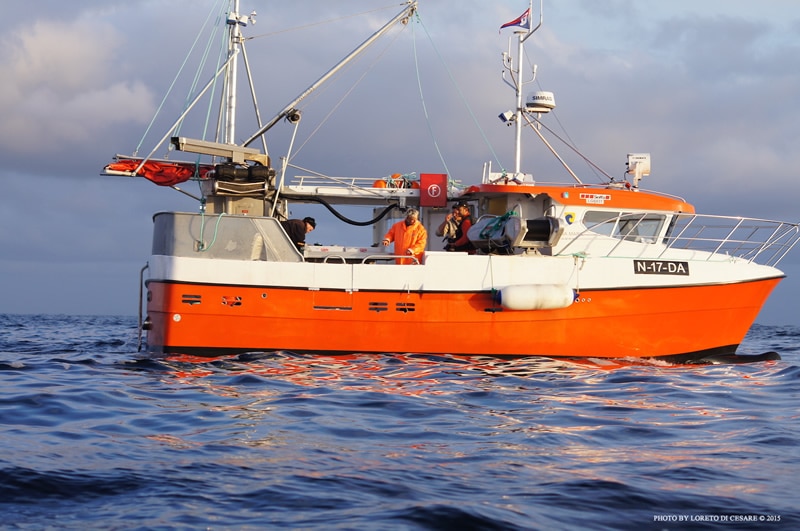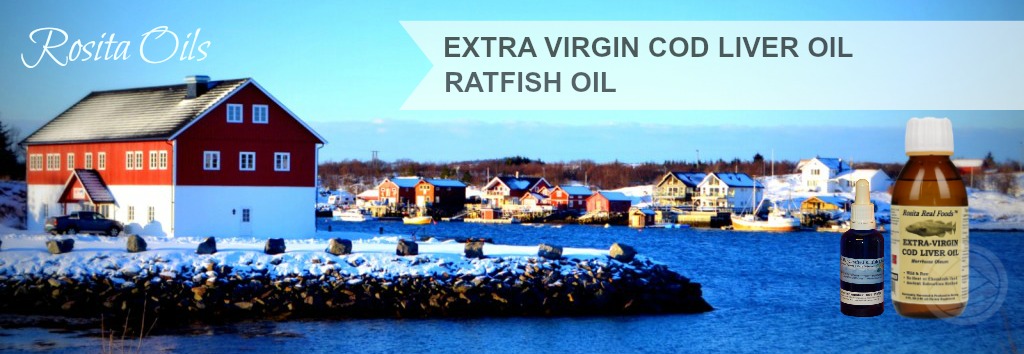
VIEW OUR RANGE BY CLICKING ON THE IMAGES BELOW
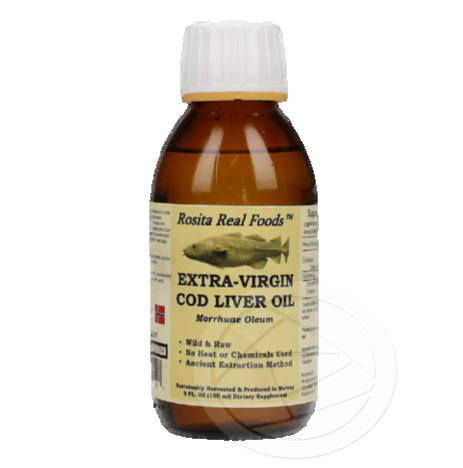 Extra Virgin Cod Liver Oil
Extra Virgin Cod Liver Oil
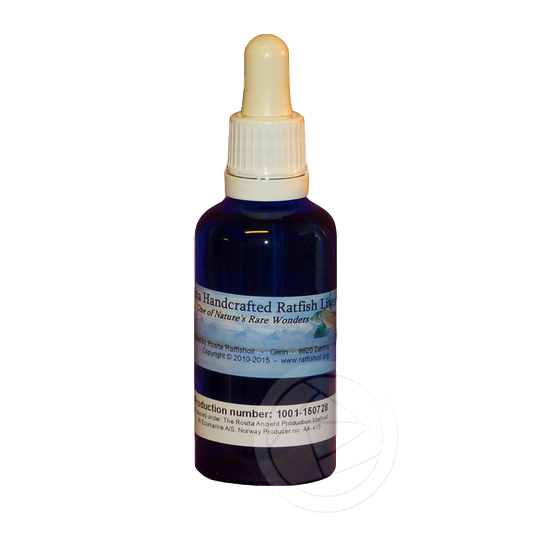 Raw Ratfish Oil
Raw Ratfish Oil
What Makes EVCLO So Special?
“Know your farmer, know your fisherman”
With rampant fraud in fish oils, olive oils, vegetable oils and other edible oils, it is more important than ever for the consumer to know who is producing your food and how it is actually being produced and packaged.Similar to ‘single estate’ artisan olive oil producers that grow, press and bottle under one roof to ensure the consumer is getting only the highest quality pure extra virgin olive oil, Rosita felt it was equally important to control all aspects of fishing and processing for the production of Extra-Virgin Cod Liver Oil (EVCLO).
Species
“Healthy cultures relied on traditional wisdom”
For the Vikings of Northern Norway, the liver oil of the Atlantic Cod (Gadus Morhua) was held in high regard due to its tremendous powers of healing. The old sailors would rub the oil on their sore muscles and joints for relief. European infirmaries and apothecaries of the 1700’s and 1800’s reported amazing cures using cod liver oil from the Atlantic Cod. Mølje, an ancestral dish of Atlantic Cod filets along with the roe, livers and liver oil, were combined for a meal that helped Norwegians stay strong and ward off illness during the long dark winter months. Other fish species contain vitamin A and D plus Omega 3 fatty acids, but none of them possess the documented health claims attributed to cod liver oil from the Atlantic Cod. Rosita’s philosophy is to go with the cod species that put cod liver oil on the map, fish from the same waters and treat the oil as one would treat any freshly caught raw fish.
Vitamins
“Biologically active vitamin A and D3”
Rosita catches deep water Atlantic Cod from the fjords near their home on the island of Donna, Northern Norway. The beauty of EVCLO for the consumer is that they receive their vitamins in exactly the same form and levels as they exist in the liver of a living Atlantic Codfish. Rosita neither enhances the vitamin levels by adding synthetics, nor do they use any processes that might damage or destroy the natural vitamin levels.
The vast majority of fish oils on the market today are highly refined and contain synthetic vitamins. The biggest challenge for most labs testing EVCLO is their unfamiliarity with testing raw fish oils with all of the saturated fats, waxes, triglycerides and other natural components intact. Labs that are not equipped to test raw fish oils have found extreme variations in the vitamin content of EVCLO; one lab even found exceptionally high levels of vitamin D2, even though vitamin D2 does not exist in cod liver oil.
Working with the finest labs specializing in marine oils, test results have confirmed EVCLO’s vitamins are at their full bioactive levels. The vitamin A and D levels are considered normal by cod liver oil standards and fluctuate from season to season and batch to batch. More importantly the vitamins remain in their natural form, along with all of the naturally occurring cofactors and other nutrients.
Omega 3
“True cod liver oil”
The only international rule for the determination of true cod liver oil is the DHA/EPA ratio. In true Atlantic (Gadus Morhua) cod liver oil, the DHA levels are higher than EPA levels. The ratio of DHA to EPA in EVCLO is approximately 1.4 to 1. In all other fish oils (and even other cod species), the EPA levels are higher than DHA levels. Cod liver oil brands that purchase a readymade oil have little control over their reported EPA/DHA levels. Other brands with control over their production may add extra DHA to non-cod oils in order to achieve the correct ratio and label it as true cod liver oil. Rosita only uses Atlantic Cod for the production of Extra-Virgin Cod Liver Oil with DHA levels of 700 mg/teaspoon and EPA levels of 510 mg/teaspoon.
Freshness
“The only way to get fresher than EVCLO is to go to Norway and catch your own Atlantic cod”
Rosita has received rave reviews on the fresh taste and efficacy of EVCLO ever since its introduction to the global market in 2014. Cod liver oil is rich in polyunsaturated fatty acids. These acids are very fragile and can oxidize (become rancid) if they are not handled with the utmost care. Rancid polyunsaturated oils can be damaging to health, which is why EVCLO is made fresh and a great deal of effort goes into making sure it stays fresh from production through consumption. No flavors are added and no processes are used that might alter the taste and structure of EVCLO. As was the case for our ancestors, your sense of smell and taste are the most important gauge of freshness. Rosita EVCLO requires refrigeration because it is fresh and raw. The oil does thicken and become opaque in the refrigerator because it contains the full spectrum of fatty acids and co-factors working together in harmony.
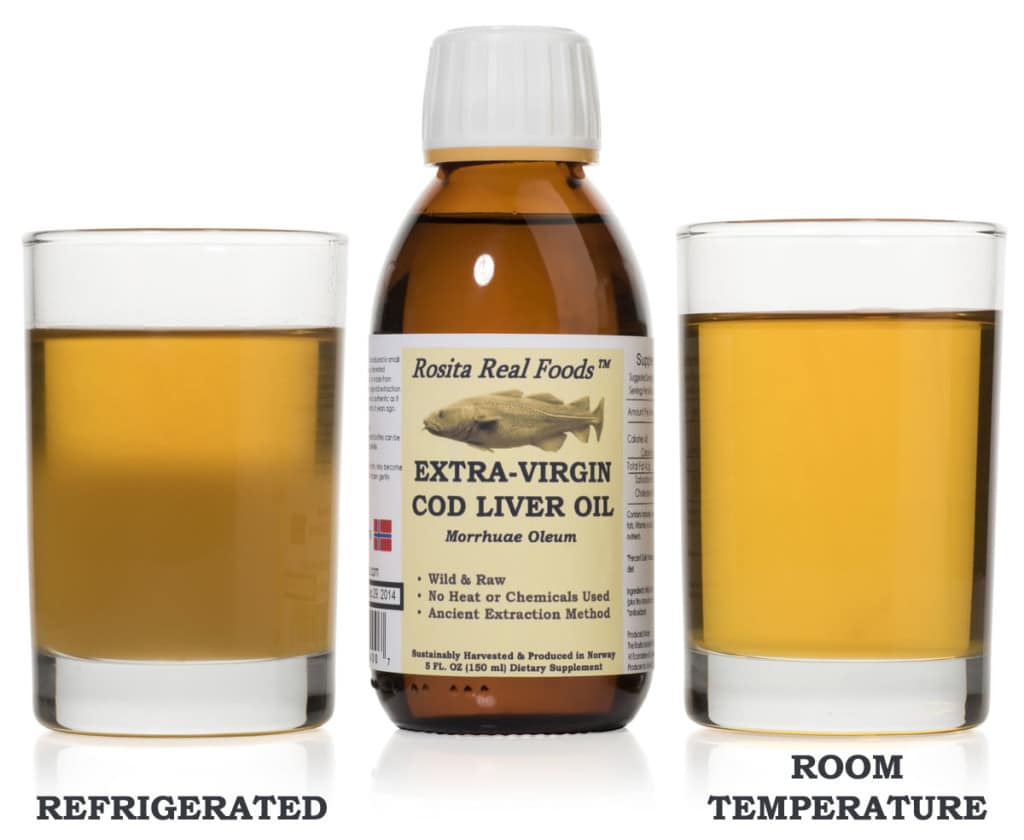
Low Contaminants
“Every batch of EVCLO is tested for contaminants”
Despite fishing in some of the world’s most pristine waters off the coast of Northern Norway, Rosita filters EVCLO to ensure the finished product meets strict European Union limits for contaminants. Industrial methods, such as molecular distillation, are effective at reducing contaminants; however, such methods severely damage the natural vitamin A and D and other nutrient content of the oil. Instead of using invasive distillation techniques, Rosita utilizes a unique proprietary filtering system that uses materials from the ocean to attract contaminants. No heat or chemicals are ever used during the production of EVCLO. Testing for contaminants are performed on all Rosita fish oils on a per batch basis and the results posted on www.evclo.com/testing. We are committed to providing a safe cod liver oil loaded with health benefits.
No Radiation Concerns
“Lowest levels of radiation on the planet”
Testing for radiation in the oceans is important and something Rosita keeps a close eye on. Fish and fish oil exports are a huge portion of the Norwegian economy. All aspects of preserving the sustainability of this important industry are continuously monitored by the Norwegian government including the ocean radiation levels in and around Norway. Rosita fish oils come from the areas with some of the lowest levels of radiation on this planet. We use the best European Institutes to test our oils and many of them are government-linked. No isotopes due to Fukushima have been found. There have been no safety concerns regarding radiation with Rosita fish oils.
Sustainable
“Everything is done with nature in mind”
Norway has more than one hundred years of experience in fisheries management and marine research through the Directorate of Fisheries and the Institute of Marine Research, both established in 1900. In 1946 Norway became the first country in the world to establish a Ministry of Fisheries. Norwegian fisheries have evolved into a highly regulated industry with quotas and licensing requirements. The most important fish stocks migrate between Norwegian and foreign waters and, consequently, good governance requires close cooperation with neighboring countries. A primary basis for determining fishing quotas is the advice and recommendation from the International Council for the Exploration of the Sea (ICES). In the early 2000’s and prior years more than 50% of the fishable population of North-East Atlantic cod (Gadus Morhua) in the Barents Sea was caught each year under a loose quota system. This was not sustainable. The Joint Norwegian-Russian Fisheries Commission therefore decided on a long-term plan to manage the population of North-East Atlantic cod in the Barents Sea. Since 2008 more stringent quotas allow for only 25-30% of the fishable population to be caught each year. Current stocks of Atlantic Cod in Norway have reached pre-World War II levels and continues to grow. Other countries within the Atlantic’s Arctic Circle that over fished in the 1980’s have never regained their Atlantic cod populations.
No massive commercial fishing boats are used that can damage ocean ecosystems, instead open boats are used to harvest the fish. Rosita’s boats put out sea bird-friendly long lines baited with fat slices of frozen mackerel or herrings, and the cod are caught carefully to protect numbers. Line-caught fish are a much better alternative to fish that have been caught by destructive trawling methods. Using this sustainable method of fishing does increase the cost of the final product.
Transparency
“Fresh, Wild and Raw”
Producing a highly-processed cod liver oil that is shelf stable, palatable and cheap, is the easy, profitable route. Producing a raw and fresh cod liver oil from specific species (from specific waters), is the more challenging route, and one that Rosita has chosen to ensure superior quality and for maximum health benefits.
Similar to finding a great source of local raw milk, the discerning consumer appreciates the labor, skill, expertise and expense that goes into producing a fresh and authentic cod liver oil. They treasure the find and accept that these foods may cost a bit more than conventionally produced foods.
Rosita EVCLO is the only raw cod liver oil bottled fresh in Norway. Comparing the vitamin and omega 3 fatty acid values on a line by line basis with other brands will not give you an understanding of the efficacy of the oils. Knowing the exact species of fish, where the fish are caught, who is catching the fish, how the oil is being processed and the capacity of the oil to increase your family’s health is a much better gauge than comparing the price per serving or vitamins per serving. This is why transparency is so vitally important in today’s fish oil market and in all types of food production. Click here to learn more about how EVCLO is processed.

